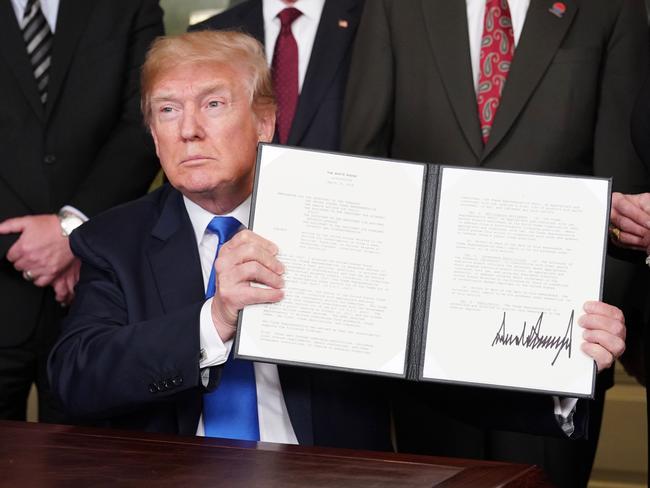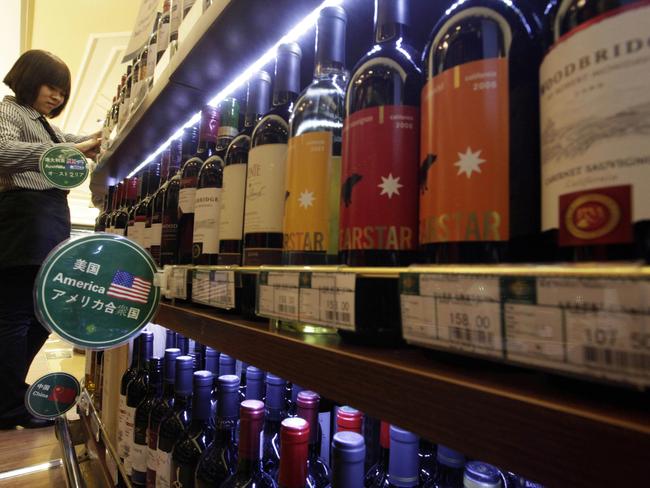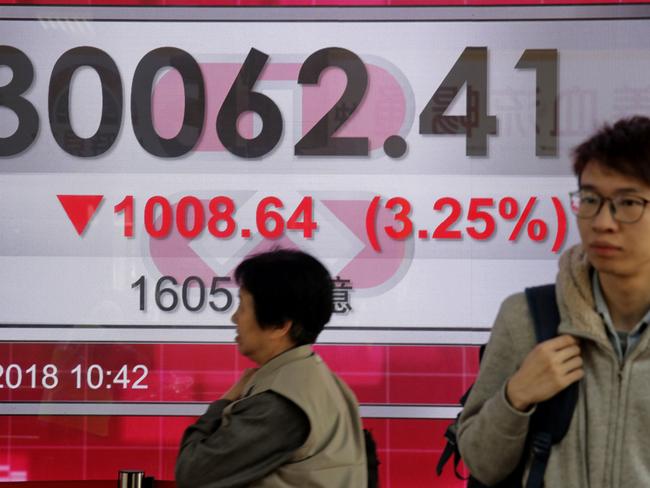Opinion: World fears of trade war after Trump hits Chinese imports with $80 billion in tariffs
AS DONALD Trump introduces a massive $80 billion in tariffs aimed at Chinese imports, Paul Syvret questions how China will respond to the US President’s increasingly bellicose “America first” brand of mercantilism.
Opinion
Don't miss out on the headlines from Opinion. Followed categories will be added to My News.
CHINA is no saint when it comes to free and fair trade.
It has its own suite of industry subsidies and tariffs, is not averse to currency manipulation, and has giant state-owned enterprises that scour the world looking for strategic investment opportunities. At the same time China has a reputation for intellectual property theft, or at least forced transfer of IP via offshore acquisitions.
And as it stands, the US runs a not insubstantial goods and services trade deficit with China – $500 billion in 2016 according to the Office of the United States Trade Representative. This combination of perceived ills is the stated reasoning behind US President Donald Trump’s announcement of a massive $78 billion in tariffs aimed at Chinese imports, plus restrictions on Chinese investment in key US technologies.

Trump has taken the action under section 301 of the Trade Act, which empowers him to take unilateral action against policies which “burden, restrict, or discriminate against United States commerce”. Details of what products will be subject to the 25 per cent Trump tariffs are yet to come, with the White House saying only that the list will include aerospace, information and communication technology, and machinery.
The President describes the intervention as “reciprocal”, although if you were the Chinese on the receiving end of such punitive action, you may be more inclined to view the move as a very aggressive first strike. And here lies the danger. How exactly will China (and the rest of the world) respond to Trump’s increasingly bellicose “America first” brand of mercantilism?
This is what put global financial markets into a tailspin on Thursday night, with shares on Wall St falling more than 700 points, or 2.9 per cent. Major US exporters such as Boeing and Caterpillar were hit particularly hard as investors worried about what retaliatory measures the Chinese would take, and the prospects of a wider trade war.

These very real concerns came to the fore three weeks ago when Trump announced special tariffs on imported steel and aluminium. He has since granted a raft of exemptions to allies (including Australia, Canada, Mexico, South Korea and the EU), amid a storm of protest from US manufacturers worried about rising input costs.
His move yesterday underscores the fact that Trump really only has one target in mind, and that is China, a country he has previously described as “an economic enemy” that was “raping” American workers.
The question right now is just how Chinese President Xi Jinping will react.
For the Chinese leader it is a fine line to tread. On the one hand Xi cannot, in the domestic sphere, be seen to be weak in the face of US aggression. On the other if he responds in kind we face the very real threat of things escalating into full-blown trade war territory.
That would see the Chinese economy – and with it demand for Australian exports – slow, and likely feed into inflation in the United States as input costs rise, in turn putting upward pressure on interest rates.

None of this would be good news for Australia, or any other nation for that matter. A major confrontation between the world’s two largest economies would cause immense collateral damage, threatening not just growth and trade but also heightening security risks.
And just how smart Trump plays this also remains to be seen. On the surface he appears to take an exceptionally crude and simplistic view of trade – countries with a trade surplus win, and those with deficits are losers.
This of course ignores not only the complexities of an advanced economy that relies on low cost inputs to produce often high value-added exports (such as jet aircraft and electronics), but also overlooks the fact that a country which attracts more foreign investment than it invests overseas itself will also be running a deficit.
It would be hoped that this is a classic feint, and that a compromise will be reached in which China grants some limited “concessions” that give Trump a political win, at the same time as allowing Xi to save face. The alternative is a far darker prospect in which there will be no winners, “bigly” or otherwise.


